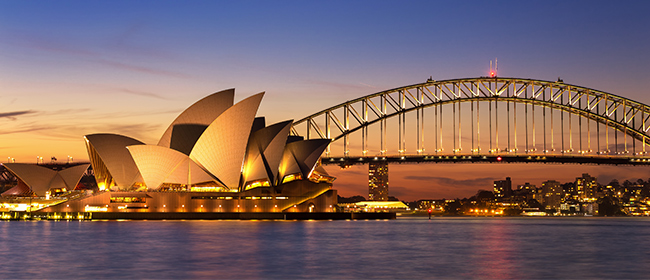Currency View by OFX


Last week’s news
- The New Zealand Dollar was last week’s star currency, rising as much as 1.4% against the USD, its largest gain in nine months. This was on the back of the Reserve Bank of New Zealand surprise decision to hold the Overnight Cash Rate (OCR) steady at 1% on Wednesday. The Kiwi Dollar advanced to 0.6417 on the announcement and the currency remained well supported through the rest of the week on the back of positive US-China talks as well as data showing a surge in milk prices domestically and in the U.S. since the beginning of October.
- Early last week Nigel Farage announced that his Brexit Party would not be fielding candidates in the 317 seats won by the conservative party in the UK in the 2017 election. The move comes as The Brexit Party does not want to split the votes from leave voters and the hope is that it will improve the chances of a majority Conservative Government that get Brexit done and leave the E.U, which is the primary objective of the Brexit Party. They will however field candidates in all Labour and opposing parties. The move was a boost for Boris Johnson and the GBP rose on the back of the news.
- Powell was not alone in his speech; other Fed officials were on the same page. For instance, New York President John Williams said growth and monetary policy are, “…in a good place.” Vice-Chairman Richard Clarida called the economy, “…at or close to maximum employment and price stability.” St. Louis’ James Bullard said the yield curve suggests a bullish 2020 outlook and recommended the bank “wait and see,” the impact of recent easing.
Looking ahead
- Volatility in emerging market currencies is sitting at its lowest level in nearly two years, but if history is any guide, investors may soon be in for a bout of turbulence. The 30-day historical volatility for the MSCI Emerging Markets Currency Index has fallen below a level that has preceded sudden bursts of price swings five times in the past two years. With uncertainty about a path towards a phase one US-China trade deal, hawkish signs emerging from the Federal Reserve and bubbling geopolitical risks in Latin America/Hong Kong may be among some of the catalyst that could put an end to the recent calm.
- The likelihood of the U.S. and China reaching a phase-one trade deal remains the main driver on financial markets currently. There are some signs of complicating trade talks; for instance, the Senate is preparing for the accelerated passage of a law to support pro-democracy protesters in Hong Kong. Which of course Beijing rejects. At the same time, by the end of last week, White House economic advisor Larry Kudlow said that phase-one trade talks between the U.S. and China are in final stages.
- The other theme in focus for this week: the US House Intelligence Committee public impeachment hearings. On top of that, we’ll get the first TV debate between Johnson and Corbyn in the UK on Tuesday, plus the OECD Eco outlook on Thursday.
Key market events this week
- RBA Governor Lowe Speech in Sydney – Tuesday
- USD Housing Starts MoM (Oct) – Tuesday
- AUD Westpac Leading Index MoM (Oct) – Wednesday
- CAD Consumer Price Index YoY (Oct) – Wednesday
- US FOMC Meeting Minutes (From Oct 30th) – Wednesday
- EUR OECD Economic Outlook Report – Thursday
- ECB Account of October Policy Meeting (Oct) – Thursday
- JPY National Consumer Price Index YoY (Oct) – Thursday
- ECB President Lagarde speaks in Frankfurt in first keynote speech – Friday
- CAD Retail Sales MoM (Sep) – Friday
Disclaimer
Note that specialist Accounting, Property, Mortgage and Foreign exchange services offered by our partners, Stoneturn, OFX, Hartley’s and LJ Hooker are via referral arrangement only. Australian Expatriate Services are not responsible for any advice/services provided by these Firms.
